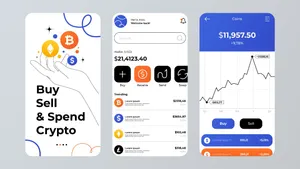Choosing a broker for the long term isn't just about fees and apps; it's about reliable customer service and support. When a critical issue arises—like a complex account transfer, an estate settlement, or a technical issue during a volatile trading day—you need competent help, and quickly.
Fidelity, Charles Schwab, and Vanguard are the "Big Three" investment giants. While they all offer low fees, their customer service models and strengths are distinctly different.
Service Models: Quick Comparison
The Big Three have adopted different approaches to client support, affecting accessibility and expertise.
| Brokerage | Primary Service Model | Key Strength for Clients | Ideal Client Profile |
| Fidelity | Omnichannel (Digital, Phone, Branch) | Speed and Accessibility of general support. | The everyday investor who wants convenience and fast answers. |
| Charles Schwab | Comprehensive / Advisor-Centric | Quality of Advice and best In-Person support network. | The investor with a high balance or complex financial planning needs. |
| Vanguard | Low-Cost / Self-Directed | Deep Expertise in funds, but tiered service based on assets. | The long-term, passive investor who rarely needs to call. |
Head-to-Head: Support Channel Breakdown
1. Phone and Digital Accessibility
- Fidelity (Winner for Speed): Fidelity employs a massive support team, meaning wait times are often shorter. They offer 24/7 phone support and have highly effective digital tools (chatbots and secure messaging) for basic inquiries. This is the broker for the investor who needs fast resolution on routine issues.
- Charles Schwab: Schwab's service is top-tier but often geared toward clients with larger balances. They focus on quickly connecting clients with dedicated financial consultants. Phone support is 24/7, but wait times can sometimes be longer than Fidelity's.
- Vanguard (The Tiered Caveat): Vanguard's model prioritizes low expense ratios. For basic account holders, phone support can be notoriously slow, especially during peak market hours. However, service quality improves drastically for clients in their higher tiers (Admiral and Flagship status), where they gain access to dedicated phone lines and personalized support teams.
2. Branch and In-Person Support
- Charles Schwab (Largest Network): Schwab maintains the largest network of physical branch locations across the country. They are the clear leader for clients who prefer face-to-face interaction for tasks like notarizing documents, setting up complex trust accounts, or meeting with an advisor.
- Fidelity (Strong Presence): Fidelity also maintains a large, well-staffed branch network, often focused in major metropolitan areas, providing a strong option for in-person service.
- Vanguard (Minimal Presence): Vanguard operates very few physical offices, reserving in-person support mostly for their highest-tier clients or specialized financial planning services.
3. Technical Support and Complex Issues
When dealing with non-routine matters—like estate settlement or technical problems—the differences in expertise become clear:
- Estate Settlement: Both Schwab and Fidelity handle the complex process of settling an estate or dealing with trust accounts exceptionally well. Schwab is often noted for guiding beneficiaries through the complex documentation and processes efficiently, especially for large estates.
- Account Transfers (ACATs): All three handle standard account transfers efficiently. Fidelity is frequently cited for having one of the quickest and least problematic transfer-in processes for basic accounts.
- Cybersecurity and Technical Glitches: Fidelity and Schwab invest vast sums in their IT infrastructure, providing multiple layers of technical support and stability. Vanguard, due to its cost-cutting model, has historically faced more user complaints regarding website outages and difficulty with advanced online transactions, which can be frustrating during periods of high market volatility.
Final Verdict
The best service is the one that aligns with your portfolio size and need for personal interaction.
- Choose Fidelity if you value the fastest possible resolution for routine issues and easy access to digital and phone support.
- Choose Charles Schwab if you value in-person advice, a vast network of branches, and efficient handling of large, complex transfers or estate matters.
- Choose Vanguard only if your primary investment goal is minimizing expense ratios at all costs and you are confident you will primarily use self-service tools. Be aware that top-tier service requires significant assets.






